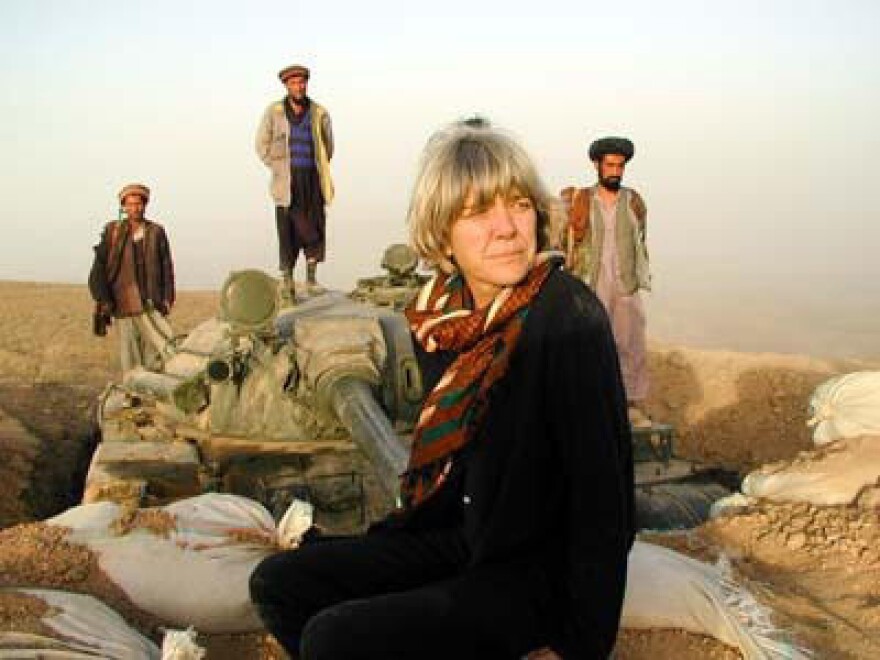Anne Garrels left this earth wishing she could go to Ukraine to cover the war, and tell more stories of struggle, courage, and survival. Annie and I handed off the keys to each other in many war zones, including Kosovo, Afghanistan and Iraq. When she died this week, at the age of 71, I thought of the long dinners we'd have before one of us left, filled with small gossip in bombed-out places, and long, restorative belly laughs.
But I want to use this time to hear from Annie.
She became a journalist in the 1970s, when women reporters were often assigned stories about homemaking or candidates' wives, and dismissed with little pet names by male editors and colleagues.
Annie always said she found it an advantage to be a woman journalist, "especially, ironically in societies where women are sequestered," she once wrote. "I can walk both sides of the street, talking the talk with male officials while visiting the women's inner sanctums, which are often off-limits to foreign males."
Her 2017 book Putin Country describes the taxi drivers, teachers and gangsters she met over two decades of visits to Chelyabinsk, Russia - a former Soviet military region near the Ural mountains.
She learned a lot, she wrote, in a women's banya, or bath house, where, she said, "Languorous discussions are interspersed with douses of cold water ... perhaps a beer."
"It's hard to find women who have much good to say about Russian men," she wrote. One woman told Annie, "'While many men took to their couch and bottle, we women forced ourselves to adjust. Someone had to feed the children.'"
Her 2004 book, Naked in Baghdad, tells of her weeks as the only broadcast journalist who remained in the city as U.S. forces bombed the capital.
Because Annie stayed in Baghdad, she got some shopkeepers who stayed up all night to guard against looters to tell her how the U.S. "victory" made them anxious. She wrote:
"'I've never known freedom," thirty-three-year-old Ali al-Abadi says, the tremor in his voice revealing a jumble of mixed emotions. "We want a just government, but we want a just Iraqi government,' he adds. ... They want nothing to do with anyone who has just come back from living in luxury abroad while they themselves have suffered at home."
And because Anne Garrels had shared some of those most dangerous times with them, in place after place around the globe, people would look her in the eye and talk to her.
Copyright 2022 NPR. To see more, visit https://www.npr.org.




